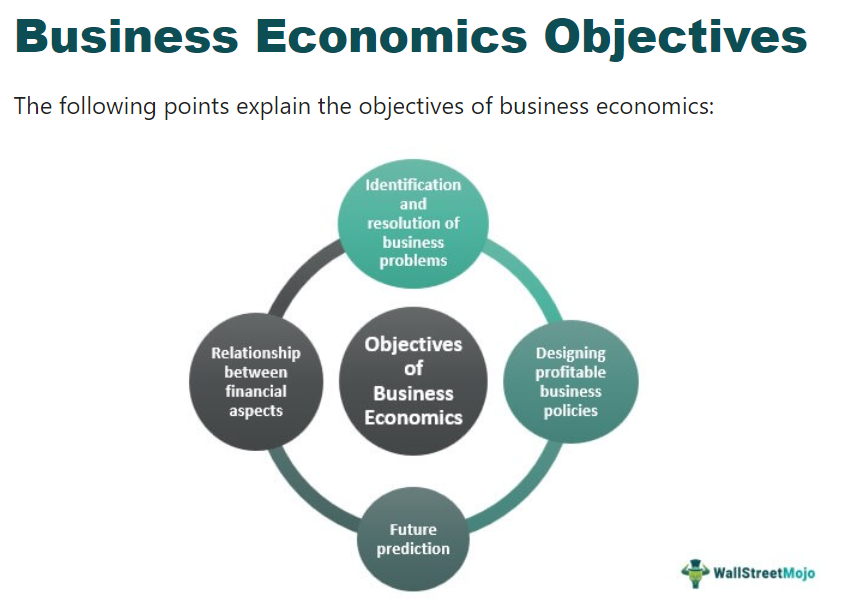Exploring How Business and Economics Influence Purchasing Habits
Exploring How Business and Economics Influence Purchasing Habits
Blog Article
Comprehending Economic Principles for Better Business Decision-Making
In the complex landscape of modern-day service, a comprehensive understanding of financial concepts can substantially improve decision-making procedures. The application of these financial concepts frequently exposes unexpected difficulties and possibilities that can redefine critical approaches.
The Basics of Economic Theory
Financial theory offers as the foundation for comprehending exactly how companies and people choose in the presence of deficiency. At its core, financial theory analyzes the appropriation of minimal resources to satisfy limitless wants. This fundamental principle of shortage demands compromises, engaging decision-makers to review the prices and benefits related to various options.
The two main branches of financial theory are macroeconomics and microeconomics. Microeconomics concentrates on private representatives, such as companies and customers, examining their behavior and interactions in particular markets. It emphasizes principles like supply and demand, cost elasticity, and market balance, which are critical for understanding how prices are determined and how resources are dispersed.
Alternatively, macroeconomics checks out the economic situation as a whole, addressing more comprehensive concerns such as rising cost of living, joblessness, and economic growth. It provides understandings right into systemic sensations that impact all economic representatives, leading policymakers in crafting effective financial approaches.
Eventually, a solid grounding in economic concept is necessary for efficient service decision-making. By comprehending the principles of deficiency, compromises, and market dynamics, companies can much better make and navigate complex settings notified choices that boost their affordable advantage.
Trick Economic Indicators
Secret economic indications offer as important tools for analyzing the wellness and instructions of an economy, giving useful understandings for company decision-making. These indicators are quantitative actions that show the economic efficiency and can be categorized right into leading, lagging, and coincident indications.
Leading indications, such as customer self-confidence indexes and stock exchange patterns, forecast future financial activity, enabling services to anticipate changes on the market. Delaying signs, like unemployment prices and business revenues, provide understandings into the economy's previous performance, aiding companies to review long-lasting fads. Coincident signs, such as GDP development and retail sales, vary all at once with the economy, supplying a real-time picture of economic problems.
Understanding these signs makes it possible for businesses to make enlightened choices pertaining to financial investments, source allowance, and calculated planning. By closely monitoring these key financial signs, companies can navigate unpredictabilities and place themselves successfully in the ever-changing economic landscape, ultimately boosting their decision-making procedures and long-lasting success.

Market Frameworks and Dynamics
Comprehending market structures and dynamics is crucial for services intending to prosper in competitive atmospheres. Market frameworks, extensively classified into ideal competitors, monopolistic competition, oligopoly, and monopoly, significantly influence prices strategies, product distinction, and affordable behavior. Each structure offers distinct difficulties and possibilities that can dictate a firm's critical direction.
Oligopolies, defined by a few dominant players, lead to synergistic decision-making; companies need to meticulously take into consideration rivals' actions to their actions. Monopolies exist when a single company regulates the market, resulting in optimal pricing power but frequently attracting governing analysis.
Comprehending these dynamics enables businesses to prepare for market fads, adjust approaches, and optimize source allowance. Furthermore, acknowledging how external variables like modern technology and regulation impact these structures can enhance strategic preparation. By grasping market structures and characteristics, companies can make informed choices, eventually enhancing their affordable placement and driving lasting development.
Consumer Behavior Insights
Consumer actions plays a crucial function in shaping service techniques and end results. Comprehending how customers make purchasing decisions, my explanation their choices, and the aspects influencing their habits can considerably boost a company's capability to satisfy market demands. Trick understandings into customer behavior can be originated from analyzing demographics, psychographics, and behavioral patterns.
Group elements such as age, sex, education and learning, and income degree provide a foundational understanding of target audience. Psychographics dive deeper, checking out customers' attitudes, way of lives, and values, which can affect brand name commitment and product perception. Behavioral insights, look at this web-site such as buying regularity and action to promos, are important for tailoring advertising initiatives.
Furthermore, exterior variables like financial problems, social fads, and technical innovations also impact consumer choices. Throughout financial slumps, customers may prioritize important goods over luxury items, altering need patterns.
Using Business Economics to Method
Insights acquired from consumer behavior contribute in creating reliable service methods. By leveraging economic principles, businesses can much better recognize market characteristics, enhance resource allotment, and enhance competitive positioning. Analyzing need flexibility, for example, enables companies to change pricing strategies to take full advantage of income while remaining eye-catching to consumers.
Additionally, recognizing market division allows organizations to customize their offerings, ensuring they fulfill the certain requirements and preferences of varied customer teams. Business and Economics. This targeted approach boosts client complete satisfaction and fosters brand commitment

Incorporating video game concept right into strategic preparation additionally supplies understandings right into affordable habits, enabling firms to anticipate competing activities and develop counter-strategies efficiently.

Final Thought
In conclusion, a thorough understanding of economic concepts substantially enhances organization decision-making. By analyzing market structures, evaluating consumer behavior, and assessing vital economic indicators, firms can establish effective methods that straighten with market needs. The application of principles such as demand elasticity and possibility prices better help in enhancing resource allotment and financial investment decisions. Inevitably, incorporating these financial concepts promotes boosted tactical choices, facilitating better anticipation of market trends and affordable actions, thereby driving productivity.
In the facility landscape of modern service, a complete understanding of financial principles can dramatically enhance decision-making procedures.Leading indications, such as customer confidence indexes and stock market fads, forecast future financial activity, allowing organizations to prepare for adjustments in the market. By carefully keeping track of these essential economic indications, services can navigate uncertainties and place themselves successfully in the ever-changing economic landscape, inevitably improving their decision-making processes and lasting success.
By leveraging financial principles, organizations can much better understand market characteristics, enhance resource allocation, and boost affordable positioning.In verdict, a detailed understanding of economic concepts considerably enhances organization decision-making.
Report this page